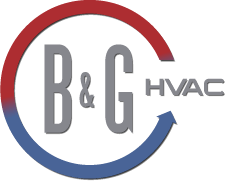Purchasing your first home is thrilling. You’re likely trying to keep track of a dozen things or more to ensure you’re making the right choice. We believe that gaining insight into your future HVAC system is crucial. The property’s HVAC system represents a substantial investment and potential source of long-term costs, which is why due diligence helps all first-time homebuyers.
In the following guide, we’ll outline seven tips for discovering all there is to know about a home’s heating and cooling setup. And if you want a deeper opinion from the experts, feel free to call B & G HVAC. Our experienced team can weigh in on your options with industry insights you won’t find elsewhere.
1. Which Kind of HVAC System Does the Home Use?
Start by identifying what type of HVAC system the home has. Furnaces generally last longer compared to air conditioners, and some of the latest types of HVAC systems like heat pumps feature average life spans that are impressively long. Tracking down the make and specific model ensures you have a clear idea of how much maintenance it will require.
2. What Is the Current System’s Age?
It also helps to learn how old the HVAC system is when you’re looking at a new home. On average, HVAC systems tend to run for about 10-12 years. Learning its approximate installation date helps you plan for possible repair needs or when it might shut down for good. Older systems are at a higher risk of problems, so planning ahead of time for a replacement unit could be necessary sooner than you thought.
3. Does the System Have a Warranty?
Be sure to check the HVAC system is still under warranty. If it is, that’s great news because it can help with maintenance expenses. HVAC warranties should take care of parts and labor, but the details in each policy will vary. Make sure you go over any terms that seem confusing to ensure you understand your coverage and potential out-of-pocket costs.
4. When Was the Last Time It Received Maintenance?
Take a close look at the maintenance history of the HVAC system, if this kind of history is available. This service history can demonstrate if there have been regular problems or how often a tune-up was scheduled. Ask about records for key tasks such as changing the air filter, which is a positive sign indicating regularly scheduled tune-ups.
5. Do You Know Its Energy Efficiency Ratings?
Purchasing a home with a heating and cooling system with great energy efficiency can lead to lower utility bills and less of an impact on the environment. Locate the seasonal energy efficiency ratio (SEER) ratings for air conditioning along with the annual fuel utilization efficiency (AFUE) for furnaces. Higher SEER ratings mean better cooling across the entire season, while high AFUE ratings illustrate that the fuel is efficiently converted into useable heat.
6. Can You Spot Trouble After Your Own Inspection?
Even without experience in HVAC systems, it’s still a good idea to inspect the HVAC system yourself. Keep an eye out for any concerning items that weren’t mentioned by the seller or real estate agent. This can mean bizarre noises, stubborn patches of the house that are too hot or cold and attempts at concealing any serious damage.
7. Have You Sought Out Expert Advice?
If you’re unsure about the overall state of the HVAC system, it’s beneficial to get input from certified HVAC professionals. They will be much more likely to catch things you might miss, like refrigerant leaks, bad electrical connections or damaged ductwork.
A Call with B & G HVAC Helps Take the Stress Out of Your Home-Buying Journey
Finding your first home should be thrilling, and B & G HVAC can ensure that doesn’t change. Get in touch with us at 641-316-3360. We can go over the details about how our HVAC services give you peace of mind, giving you what you need to dive into home-ownership with confidence.


